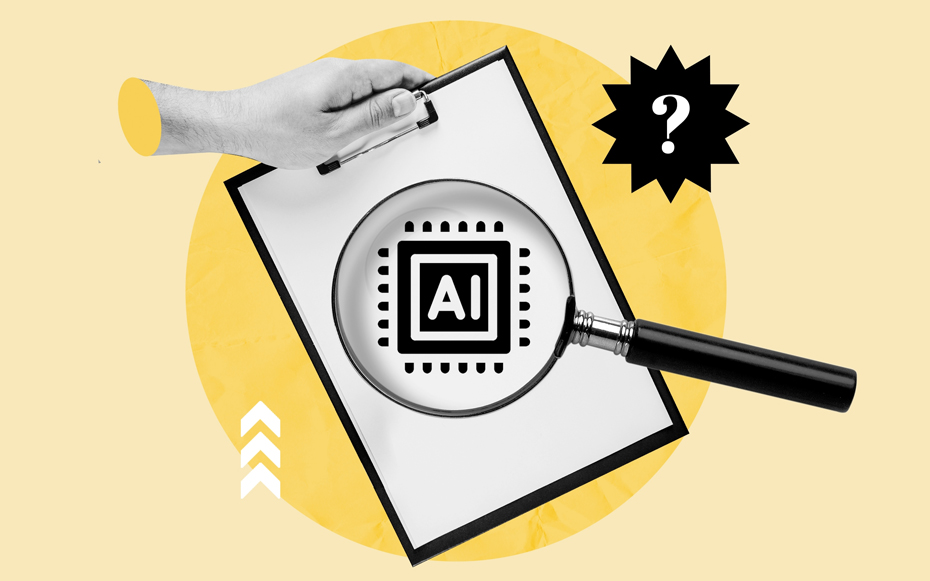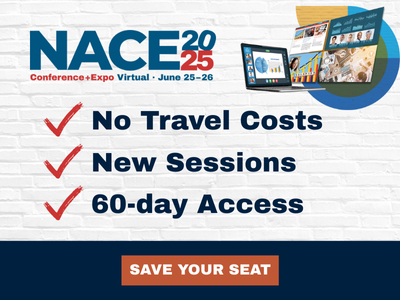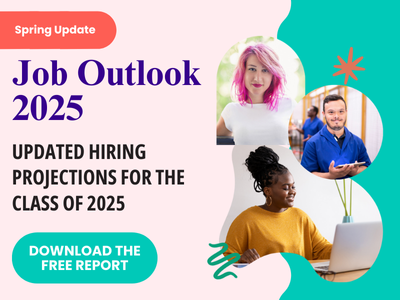NACE Journal / Spring 2024
For students
ChatGPT Prompting GuidesFor career services professionals
The Case for ChatGPT as the Ultimate Educator’s ToolkitEverywhere you look, there is an article about how to land a job using generative AI, and how to use AI tools to rewrite resumes, practice for interviews, overhaul LinkedIn profiles, draft cover letters, and even generate professional headshots.
As university educators, we urge students to use these tools appropriately and have developed guides to help students; we have also created a specialized prompting guide for career educators. (See box.) We incorporate these tools into our curriculum, discuss their implications and benefits in our lectures, and actively encourage students to engage with these innovative technologies.
While we have found that generative AI tools can be enormously helpful in the job search, we want career development professionals to be aware of some common traps and mistakes we are seeing when educators and students rely too much on AI for students’ career journey.
Top AI Job-search Traps
1. Lack of personalization: Generic prompts will result in generic responses in generative AI. Some AI tools don’t capture or translate the full scope of a student’s skills and abilities; this reduces the
value conveyed to an employer, hindering the student’s chances of securing a job.
As one blogger noted, “For all of its potential benefits, generative AI lacks context and awareness…it can’t determine whether listing one skill
over another would impress a hiring manager more.”1
We tell our students to:
- Customize their input by providing detailed, specific information about their values, skills, experiences, current pain points, and specific hopes and goals.
- Focus on building relationships with people in their target industries to learn more, instead of focusing exclusively on online research.
- Use AI as a starting point for initial drafts or ideas and then refine output with a critical lens.
2. Loss of personal voice: Relying solely on AI tools will result in generic applications and communication that lack the personal touch that can set our students apart. In a cover letter, for example, generative AI will struggle to tell a student’s story in a way that is authentic and includes their individual voice, tone, or written communication skills.
We tell our students to:
- Begin by developing their own narrative independently, which will help to maintain authenticity, before using AI to refine and strengthen materials.
- Review and tweak AI outputs to ensure the content reflects their unique voice and story.
- Seek feedback from mentors or peers to ensure the materials reflect their voice and style.
3. Experiencing bias: AI systems can inherit biases present in their training data, leading to unfair or prejudiced outcomes. Responses generated by platforms like ChatGPT pull from all information that has ever been published on the internet, including information published by prejudiced humans, so AI responses can perpetuate biases, limiting opportunities for certain demographics and reinforcing existing inequalities.
Popular AI ethics courses and articles promote “retraining the training data,” but there is very limited information about how to actually do that if you are not a machine-learning scientist.
We tell our students to:
- Be aware that information generated by AI may not be true or accurate, and that generative AI pulls from information currently available on the web, which includes fake news, propaganda, and biased content.
- Be aware of potential biases in AI outputs and always critically evaluate information generated.
- Seek diverse perspectives from mentors, peers, and industry professionals from varied backgrounds to counteract narrow and biased viewpoints from AI.
4. Missing opportunities: As AI tools rely on online data, entire fields that are not well-represented online may be missed. Exclusively relying on AI-generated job recommendations may also limit the exploration of diverse opportunities and industries that could align with a student’s skills and interests, especially more niche jobs or emerging opportunities. While generative AI can be helpful in brainstorming possible professional pathways, career educators understand that many jobs are quietly filled by internal candidates or referrals. An overreliance on information generated by AI can result in missing niche opportunities or missing the human connections that have proven to be what actually leads to securing a job.
We tell our students to:
- Broaden their job-search strategy by not only using AI as an initial brainstorming tool, but also by talking to people in target fields to understand more about niche or emerging career opportunities.
- Actively engage with industry professionals and attend events to uncover hidden job opportunities.
5. Missing updates about industry trends: The world of work is changing fast, and generative AI platforms may not always be up to date with the latest industry trends or specific job market demands. This misalignment can lead to AI content suggestions that are not up to date with the needs of certain industries or roles, especially those that are rapidly evolving.
We tell our students to:
- Stay updated with the latest industry news through listservs, publications, and engagement in professional events, such as webinars, conferences, and workshops.
- Consult with industry experts and build relationships with people in target fields to better understand the reality of job market demands.
6. Ignoring privacy and data security concerns: When using AI tools to assist in developing job-search documents, such as a resume, students and career educators might input personal information without understanding how it can be used. While it may be tempting to upload a lot of personal information and have generative AI rework the documents to save time and energy, it is crucial to understand that once information is inputted into generative AI platforms, the data are then public and can be accessed or reworked by anyone with internet access with no trail of accountability. Since there is no way to track how the data inputted into generative AI platforms are used in other contexts, this could lead to data and security leaks or, in the case of career educators, even FERPA violations.
We tell our students to:
- Be aware of and cautious about the amount of sensitive personal information shared with AI platforms.
- Seek to understand the platform's data policies, including how data are stored, used, and protected.
- As much as possible, choose AI tools with strong privacy and security measures, but recognize that most information input into AI platforms can and will be recycled back out into the world.
7. Losing out on personal development: There is a fine line between using generative AI to support one’s career exploration journey and relying on these tools. Over-reliance on AI for tasks such as resume writing or interview preparation can deprive job seekers of the learning experience and personal growth that comes from these activities, potentially impacting their long-term career development.
Although AI-generated content often seems complete, it is important to critically analyze and refine the content. We believe it is crucial that students learn and develop alongside these tools rather than relying on them to do all the work.
We tell our students to:
- Engage in self-directed learning, including, but not limited to, learning about generative AI as a learning tool. LinkedIn Learning is a great place to start and can be accessed for free in most regions with a library card.
- Use AI as a tool to turn their brain on, not off. Always analyze and question AI-enhanced content and engage in critical thinking every step of the way.
- Seek real-world experiences through internships, volunteering, or engagement with other projects. We live in a society and in a professional world driven by a web of human relationships.
8. Relying on AI to make important career decisions: It is miraculous how much of the job-hunting process one could do with the help of AI—from the search itself to refining a resume, practicing for an interview or salary negotiation conversation, and emailing a potential employer. However, we caution students against depending on AI for crucial career decisions, such as choosing job roles or career paths, without critically evaluating how these suggestions align with their personal interests, values, and long-term goals.
Instead, we tell our students to:
- Balance AI output with human judgment and personal preferences. AI can be great for generating ideas and options, but processing and reflecting on AI-generated content with a career educator or other ally is a crucial step.
- Talk with people with lived experience in target industries or roles to better understand nuances of company culture and the reality of specific job duties.
- Engage in regular self-assessment and reflection on interests and goals, independent of AI suggestions.
Empowering Ourselves and Our Students
For career educators supporting students in today’s technologically driven society, relying on easy-to-use tools can be appealing and effective—as long as we are aware of the pitfalls. As career educators, we can harness generative AI as a tool to support our students’ wayfinding journeys while also understanding the danger and inadequacy of relying solely on these tools in a career search.
At its core, career education is a deeply human-centered, personalized process and by both using these tools and understanding their limitations, we can help steward a well-rounded and effective career exploration journey for all students.
Endnotes
1 Kolakowski, N. (2023, November 13). Should You Use AI to Apply for Jobs? Dice. Retrieved from www.dice.com/career-advice/should-you-use-a.i.-to-apply-for-jobs.







